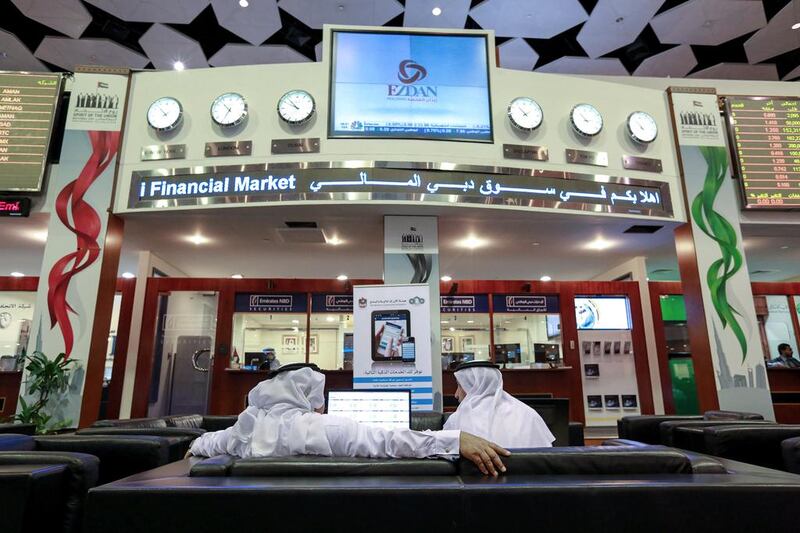Investors yesterday shrugged off worries over the long-term effect on Emaar Properties’ outlook from the fire that broke out at its Address Downtown Dubai hotel on New Year’s Eve.
Emaar’s share price pared losses in Dubai yesterday to end the session down 1.58 per cent, after slumping 4.4 per cent at the opening. It dragged down the Dubai Financial Market General Index 0.51 per cent on the day.
Authorities are still investigating the cause of the fire that engulfed the 63-storey tower. The hotel will be closed for an indefinite period. There were no fatalities.
Emaar’s shares recovered in late morning trade yesterday after Dubai’s biggest listed property developer said there would be “no material effect on the company” from the hotel fire because “the building and risk of fire are covered by insurance”, in a statement to the exchange. The company didn’t quantify the financial impact on its hotel revenues following the closure of its luxury hotel.
But the Dubai-based financial services company Arqaam Capital said that Emaar’s hotel revenue is forecast to decline by 13 per cent this year, compared with last year, to Dh1.4 billion because of the closure. Based on the new forecasts Arqaam expects total group revenue this year to rise by 29 per cent to Dh17.8bn compared to its previous estimate of a 31 per cent year-on-year increase in 2016. Arqaam is “assuming disrupted operations of 12 months … for necessary refurbishment-rebuild works”.
Emaar said yesterday it had hired Dubai-based Dutco Group as the contractor to undertake restoration work on the 63-storey Address hotel “in record time”.
Emaar’s chairman, Mohamed Alabbar, said: “To achieve our timelines, we will leverage all our resources and our proven track record of delivering iconic projects. Every aspect of the workflow will be clearly streamlined and we will deploy the latest technology tools to ensure that we meet our time frame.”
Sebastien Henin, the head of asset management at TNI, The National Investor, in Abu Dhabi, said that Emaar’s status as one of the blue chips of the market and its appeal to institutional investors should minimise any effect on its share price going forward. “The financial effect for Emaar is pretty limited, so I think investors have understood that properly and that’s why we haven’t seen a kind of overreaction [in the stock market],” he said.
Emaar’s weighting accounts for 18.68 per cent of the Dubai Financial Market benchmark index.
Shareholders, speaking on the trading floor of the Dubai exchange yesterday, supported Mr Henin’s view.
“I don’t think [the fire] will affect the company’s profits,” said Abdulkarim Al Kassem, a Saudi national and an Emaar shareholder. “It is still a strong company and has strong revenues. It is an attractive stock to buy based on its future earnings.”
Hussain Al Qatari, a Bahraini investor in Emaar, said it is “the best company in the market”.
He said: “It is a strong company and has excellent assets even if they incur losses [from the fire].”
There has been speculation in the past that Emaar’s hotel business, which also includes the Vida and Armani brands, could be the next to be spun off after the IPO of its malls unit in 2014.
However, any aspiration to list this unit, or expand the Address chain of hotels, may in the short term be affected, according to analysts.
“The effect will be reputational on how its hotel business evolves going forward because we know they have ambitions to list the hotel business,” said Muhammad Shabbir, the head of equity funds and portfolios at Rasmala Investment Bank in Dubai. “It may be a short term negative effect on that.”
Emaar’s shares ended last year at Dh5.69, down 20 per cent since the start of the year and 45 per cent below their highs in autumn 2014, when the oil price slump began to weigh on many Dubai companies.
The group’s revenue from hotels in the first nine months of this year accounted for 12 per cent of total revenue.
Its third quarter net profit rose 31 per cent to Dh843 million as rising property sales overcame the wider real estate market malaise. The results missed analyst expectations, however.
dalsaadi@thenational.ae
Follow The National's Business section on Twitter






